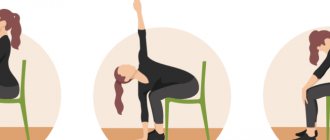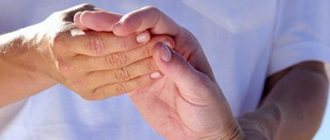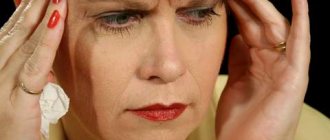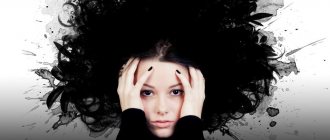- Gallery
- Reviews
- Articles
- Licenses
- Vacancies
- Insurance partners
- Partners
- Controlling organizations
- Schedule for receiving citizens for personal requests
- Online consultation with a doctor
- Documentation
Sleep is a conditioned reflex process, so sleep patterns are especially important in children, and its disruption is facilitated by noise, shaking, and night feeding, which can become firmly established as pathological conditioned reflex connections and can cause persistent sleep disturbances.
Awakening disorder manifests itself:
- stunned awakening “sleepy intoxication”,
- night terrors,
- sleepwalking.
These syndromes have a lot in common:
- occurrence in the first half of the night;
- occurrence strictly during the slow-wave sleep phase;
- automated behavior;
- lack of response to external stimuli;
- confusion;
- disorientation upon awakening;
- lack of memory of what happened the next morning.
Be on the lookout!
The psychological dream book compares the dreamed feeling of anxiety with a subconscious feeling of danger. Seeing such a plot for a young lady warns that the sleeping beauty should be wary of new acquaintances and connections with unfamiliar men.
Denise Lin's dream book states that any, especially negative, emotions in a dream are a reason to seriously think about your life. Most often, a dream of fear or anxiety does not predict any specific events, but indicates the current state of affairs of the sleeping person.
Esotericists, interpreting why one dreams of feeling anxious, proclaim the need to be alert and not to trust others too much.
Night panic in sleep: features of the condition
Panic attacks at night during sleep belong to the category of psychosomatic disorders and are characterized by the occurrence of unconscious anxiety, fear, and even horror. The numbness into which a person falls makes them fear even more and lose control over their emotions and behavior. Seizures usually occur against the background of an existing pathology or mental disorder. Considering them only as a consequence, a man or woman hesitates to contact a specialist, thereby aggravating their condition.
Characteristic symptoms of an attack
It is quite easy to distinguish a panic attack from other pathological disorders. In the vast majority of cases, after an attack the obsessive thought “I’m afraid to go to bed” persists. Symptoms of a vegetative crisis manifest themselves clearly and are formed under the influence of mental or physical factors. The first arise “in the head”, the second are associated with sensations in the body.
In complex symptoms, manifestations of a mental nature are considered predominant due to their severity.
- A feeling of impending danger.
- The emergence of a fear of death, which, with repeated attacks, transforms into a fear of falling asleep, becoming seriously ill or going crazy.
- Feeling of a foreign object (lump) in the throat.
- The occurrence of pre-fainting or clouding of consciousness.
- Depersonalization is the perception of one’s actions as someone else’s and a feeling of inability to control them.
- Derealization is the appearance of a feeling of unreality of what is happening, as in slow motion, and distortion of sounds and objects.
- Paralysis is the desire and inability to run and hide from terror.
It is important to know! In each person, due to the individual characteristics of the psyche, panic attacks can manifest themselves in different ways: in some they are vivid with a full set of phobias, in others they are erased without a pronounced emotional coloring.
Due to the appearance of paroxysm, the human body also begins to react sharply. This manifests itself in the following conditions.
- Increased heart rate due to a sharp release of dopamine and adrenaline into the blood - hormones that mobilize the body in a moment of danger.
- Feeling of wave-like changes in heat and chills due to changes in vascular tone (in particular, narrowing), sudden coldness of the extremities.
- High pressure.
- Dry mouth and increased sweating are reactions of the autonomic nervous system to a danger signal.
- Dizziness, weakness, disorientation in space.
- Reaction from the gastrointestinal tract: diarrhea or constipation, nausea, sometimes ending in vomiting, discomfort in the upper abdomen “in the pit of the stomach.”
List of reasons
Attacks of uncontrollable fear can be triggered by various reasons: the occurrence of frequent stressful situations, anticipation of a difficult or dangerous event, such as surgery.
The first group of factors are previous diseases or certain conditions:
- cardiac ischemia;
- myocardial infarction;
- difficult pregnancy or childbirth;
- the beginning of sexual activity or, conversely, menopause;
- hyperthyroidism;
- taking certain groups of medications.
The second group of factors are mental disorders:
- Depression.
- Phobias.
- Schizophrenia or schizotypal conditions.
- Post-traumatic pathologies.
- OCD is a disorder characterized by the constant presence of fear.
Distinctive features depending on the time of appearance
Due to the polyetiology, panic attacks in sleep have symptoms that vary in manifestation.
Attention! In some situations, the signs characteristic of a vegetative crisis are absent, and the attack can be determined by a sharp deterioration in the person’s condition. It is called an “atypical attack” or “panic without panic.”
In this case:
- The voice disappears.
- Vision deteriorates.
- There is an inability to speak, to “say a word.”
- Gait is disturbed.
- Limb spasms appear.
In addition, an attack may not necessarily occur late at night, but at various times from evening to morning.
Seizures occur before bedtime
Some people may experience an attack of anxiety and fear before falling asleep. Staying in bed for a long time, analyzing the events of the past day, everyday problems, family troubles, difficulties at work - this is an incomplete list of factors that provoke a deterioration in well-being before bedtime. Against the background of a seemingly calm state, terrible anxiety quickly grows, the body becomes covered in sweat, trembles slightly, and a chill appears in the stomach. A person gets chills, his hands shake, and he, starting to choke, wants only one thing - not to go crazy.
Panic attacks when falling asleep, which occur in a mild form, are often accompanied by upset bowel movements. In a more advanced state, disturbances in the functioning of the gastrointestinal tract can also be observed during the daytime.
Panic develops in sleep
The onset of panic and anxiety during sleep is observed due to the release of adrenaline into the blood. This is due to an autonomic disorder of the nervous system. The impetus for the onset of an attack is most often nightmares and terrible dreams (murder, one’s own funeral), which begin to occur quite often.
A person wakes up suddenly, as if “from a strong jolt,” feeling a rapid heartbeat, tremor of the limbs, he begins to panic. He feels like the end of the world has come. All attempts to overcome fear end in failure, since it constrains movements and paralyzes the voice.
The attack occurs upon awakening
Unexplained, painful anxiety attacks appear in the early morning after waking up suddenly long before the alarm goes off. Since you can no longer fall asleep, obsessive thoughts begin to swarm in your head, increasing anxiety and fear of the new day. As a result, the person is confused and feels depressed and overwhelmed. When tomorrow comes, a state of panic does not leave him, chills periodically appear, followed by fever, attacks of nausea or
Who's at risk
People are at risk of developing paroxysmal disorder if they have one or more of the following factors:
- physical inactivity – lack of physical activity and sedentary lifestyle;
- lack of proper sleep;
- smoking, drinking alcohol, hangover;
- caffeine abuse;
- secrecy – the inability or unwillingness to express emotions outward.
Night as a predisposing factor
Night is the ideal time for panic sleep syndrome to manifest itself. Darkness, absolute silence, ominous shadows appearing in the room contribute to heightened senses and cause attacks of inexplicable horror.
Attention! It is in the evening before going to bed that it is customary to sum up the events of the past day, and their negative connotation can cause strong stimulation of the nervous system. Another provoking factor is nightmares, which cause the body to mobilize and express emotions.
Often during a dream, a person wakes up sweating, screaming and crying, muttering incoherent words. Of course, after a few minutes there comes an understanding that it was just a dream, but the disorientation in space persists for some more period.
If you don't take action
If you have problems with nighttime panic attacks, you should seek help from a psychotherapist. Using not only medications, but also trainings and conversations, he is able to alleviate the condition and improve well-being. Specialists such as cardiologists, therapist, neurologist, and psychiatrist can help in making a diagnosis.
However, patients suffering from panic attacks are in no hurry to see a specialist. This is due to the inability to adequately assess the seriousness of the problem, as well as the fear of hearing a diagnosis of psychopathy.
Quite often, the fear of the uncertainty of one’s condition is accompanied by excessive nervous tension, which only aggravates it. A qualified specialist can break the vicious circle.
Advice! Doctors recommend starting treatment at an early stage of development of a vegetative crisis, when attacks are unobtrusive, mild in nature and have a rare frequency. It should be remembered that this disorder is not considered a serious pathology, but is a consequence of existing problems, concomitant diseases or mental disorders.
Details: reasons for fear
The Dream Book from A to Z, explaining why you dream of feeling anxious, draws attention to the cause of fear. So, experience excitement for:
- children - foreshadows a change in family relationships;
- work - speaks of the possibility of changing the attitude of management for the better;
- love relationships - announces an upcoming surprise from your significant other;
- unfinished business - promises a collision with unexpected obstacles in work.
Help with panic attacks
Both doctors and loved ones who do not have a medical education can help cope with an attack of an uncontrollable attack. Often a person can fight alone and independently “pull himself out” of a state of panic. To date, the following methods of combating the disease have been recognized as effective:
- Emotional support. You need to convince yourself that all this does not pose any threat, but is only a consequence of the body’s incorrect behavior.
- Breathing exercises. Practice diaphragmatic breathing with concentration on longer exhalation and short inhalation.
- Physiotherapeutic procedures. At home, you can take a contrast shower, do a light massage, use simple acupuncture techniques, and rub the cream into your hands.
- Distraction techniques. It is necessary to focus on what is happening outside the window of your own house, counting the sheep (before going to bed). You should do auto training
- Traditional medicine. You can take tea based on soothing infusions, tinctures of valerian, motherwort, and peony.
- Medicinal assistance. Prescriptions must be made by the attending physician. Tranquilizers and antidepressants are considered effective.
Lifestyle changes and nutritional correction are also considered effective measures in the fight against the disease. Treatment by a specialist involves the use of the following methods:
- hypnosis;
- psychodynamic therapy;
- relaxation techniques;
- cognitive behavioral therapy.
Cheer up!
The dream interpreter advises people who dream of a drill to diversify their lives with bright events. Take a vacation, spend time with family and friends, visit exhibitions or museums
The interpretation of a dream about anxiety is sometimes associated with the sleeping person’s dissatisfaction with his life. You think that you live a boring and ordinary life, dreaming of a beautiful and rich life. However, you do nothing to make your desires come true, esotericists are sure.









